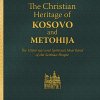Marinel Mandreš
Wilfrid Laurier University
Complementing an earlier article that identified Serbian place-names throughout the world, this composition concentrates upon commemorative appellations in the United States and Canada.1 It examines the historical circumstances by which existing, mistaken, altered, and apparent place-names arose; it also attempts to establish a naming pattern. North American geographical nomenclature includes numerous foreign designations that were not randomly chosen. Representing the intersection of geography and history, place-names preserve various aspects of a country’s national and cultural heritage that might otherwise be overlooked or forgotten by successive generations. Bestowed by early immigrants or offered by postal authorities and entrepreneurs, toponyms of a definite Serbian origin reflect prevailing attitudes towards Serbia and Montenegro at the time of their designation.
Existing Toponyms
An investigation of contemporary nomenclature inevitably involves historical anecdotes and a recounting of the personalities and events that produced them. Reasons for the naming of most places were determined. Some historical sources provide incomplete, speculative, and possibly incorrect information regarding place-name origins due to omissions, digressive explanations, and/or an absence of detailed documentation. Locally invented and recounted ex post facto explanations of probable origins should not be considered as definitive accounts. Extensive correspondence was maintained with several historical societies in an effort to ensure factual accuracy when exceedingly limited published data was available. Records related to the founding of some communities are elusive or no longer exist. In the absence of other reliable information, post office opening and closing dates provided clues as to when asettlement was established, active, and declined. It was impossible to investigate “paper towns” created by land speculators during the 1800s.
Source: Serbian Studies




